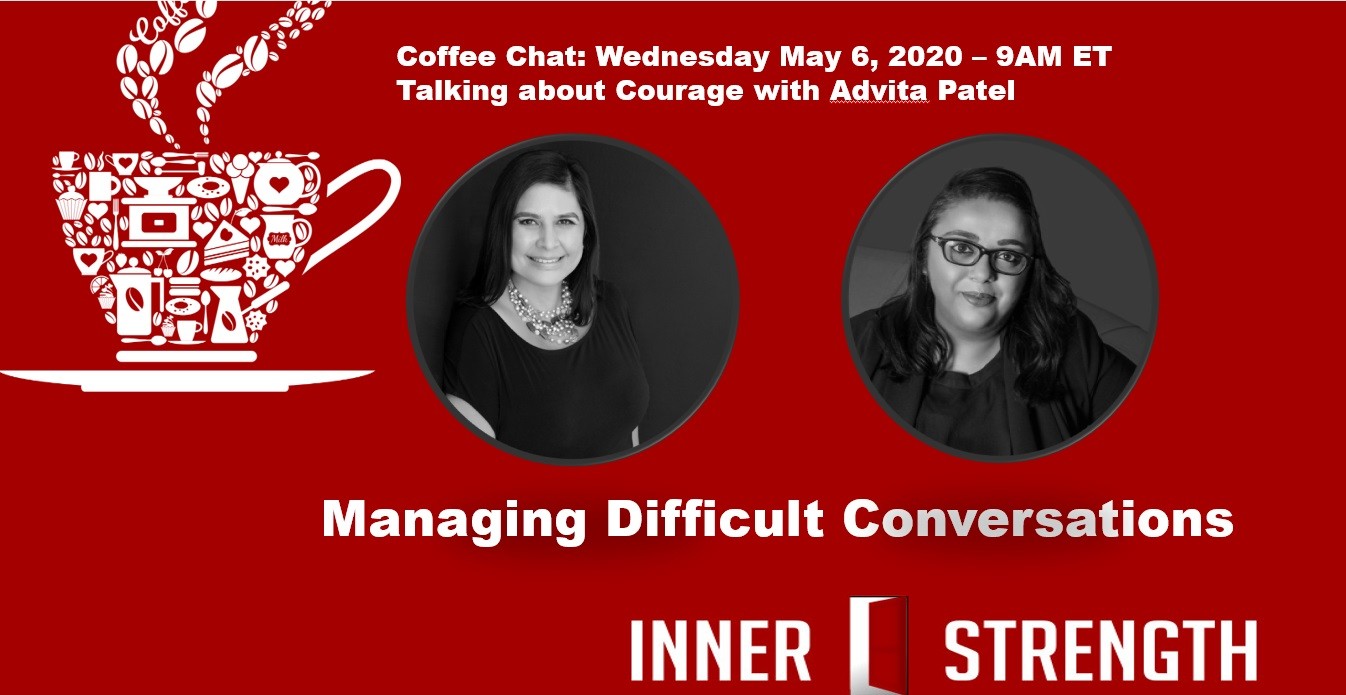Why are we afraid to have courageous conversations?
At a recent Coffee Chat, Advita Patel led a conversation, with internal communication practitioners around the globe, about the courage to have difficult conversations, especially with business and organizational leaders. 
Although Coffee Chats are not recorded (so that attendees have a safe space to drive connection and conversation) we wanted to share some highlights:
Plan and prepare
When getting ready for a difficult conversation, make sure you plan and prepare. What is your goal? What is important to the business? What is important to the leader? Put yourself in the leader’s shoes. Most importantly, since leaders often have limited time, “be bold, be brief and be gone.” Advita suggests that you always plan to take less time than you are allotted so there is time for questions and discussion.
Believe in your contribution
Enter your conversation with a positive mindset. What is the expertise you are bringing to the table that will help leaders or the business meet their goals? Remember that you’re there to help and have something important to contribute in terms of the employee communication strategy. You’re providing a connection to and understanding of employees that leaders need and will benefit from.
Empathy is a superpower
Since the majority of communication professionals tend to be female and all of the attendees at this event happened to be female, we talked about our natural skills of empathy. During disruptive times like these, leaders need to make difficult decisions while they balance the needs of employees, customers, authorities, and shareholders. Ask questions, listen to answers, acknowledge feelings and fears. Sometimes, you will be invited back simply because leaders are looking for someone they can talk to.
Focus on progress
Many of us enter difficult conversations like we’re going to battle in a winner-takes-all situation. It’s a better idea to enter a conversation focused on progress versus perfection. Be proud of the fact that you provided your advice and feedback and that some of the advice was taken. Perhaps you ended up negotiating a middle ground that met everyone’s needs.
It’s not an accident that Advita Patel named her business CommsRebel to revolutionize organizational communication and the practitioners who lead internal communication. Thanks to Advita for leading such a wonderful conversation and all of the participants from Canada, USA and the UK for their contribution.
Looking to join the conversation? Right now, we have two Coffee Chats a week featuring special guests on a variety of topics. There is limited availability with a maximum of 12 spots available.
For Wednesday 9AM ET Coffee Chats in May, register here.
- May 13: Mary-Ellen Hynd: Human Being versus Human Doing
- May 20: Martha Muzychka: Creativity in Business Development
- May 27: Puja Misra: Building your Personal Brand
For Thursday Noon ET Coffee Chats in May, register here.
- May 14 : Rocky Walls: Web Video Myths
- May 21: Suzanne Forrester: New Habits a New Way
- May 28: Bonnie Caver: Accelerating your Brand during Recovery



